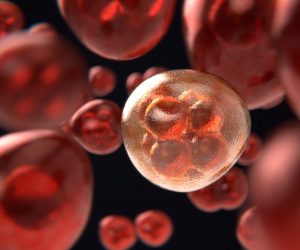
How Trauma Causes Inflammation & How to Begin Healing
Dr. Caroline Leaf – In Western thought, we see mental and physical health as two separate things, but this is not the case. Our thoughts and emotions, choice, life events, trauma and so on affect both our mental AND physical wellbeing. In this podcast (episode #225) and blog, I speak with leading functional medicine practitioner Dr. Will Cole about this mind-body connection, ways to reduce stress-induced inflammation, what adaptogens we should be taking to strengthen the mind and body, the best supplements for brain health, how to recognize and heal orthorexia, and more!
When it comes to the mind-body connection, how we handle stress is incredibly important. Stressful life events and situations amplify our fight or flight state, which impacts the body’s adaptation to stress (through the HPA axis) and can negatively affect our health if not dealt with. In fact, although the stress hormone cortisol is designed to help regulate inflammation, if we are constantly stressed out, the flight or fight state upsets our natural cortisol cycles. This, in turn, can have many health repercussions because it throws the body into a state of disordered inflammation. Our body essentially starts working against us instead of for us!
One example of this is adrenal fatigue. Adrenal fatigue does not just have to do with our adrenal glands; it is a brain-based issue, and it is related to our stress response and the HPA axis. It is related to how stressed we are, and for how long.
If we want to start combating the negative effects of toxic stress on the body, we need to look at our lifestyle choices, including what we eat. As Dr. Cole notes in his book, The Inflammation Spectrum, every food we eat either fuels inflammation or fights it. This means that our ability to handle stress and deal with trauma will be affected by our diet.
Food is medicine, yes, but this also means you should find out what your body loves—what is medicine for you? There is no cookie-cutter approach for everyone. Processed and refined sugar, for example, is an inflammatory food for everyone, but we will react to sugar in different ways and at different levels. There is an inflammation spectrum—everyone’s body is different. Just because it is your experience, doesn’t mean it is someone else’s experience.
One thing that everyone can benefit from is adding adaptogens to their diet. As Dr. Cole describes in both Ketotarian and The Inflammation Spectrum, adaptogens are plant and earth medicines that are found all over the world. They have been used in traditional medicine to help bring balance to the body and promote healing and longevity. Science is only now starting to study adaptogens and showing how many of these plants (like holy basil and rhodiola) can bring back homeostasis in the brain and body by balancing the HPA axis and reducing toxic stress-induced inflammation. They are accessible, easy to use and are a great complement to any wellbeing regimen, as Dr. Cole noted in a recent guest blog on our site.
They also help with memory formation and can improve our ability to handle anxiety. Adaptogens like chaga and lion’s mane mushrooms, for example, can boost brain-derived neurotrophic factor (BDNF), which helps grow new neurons and improve neuroplasticity (the ability of the brain to change, adapt and grow). They essentially make us more resilient physically, which helps us deal with our issues mentally!
Certain supplements can also help boost our diet and ability to handle stress:
1. Methylated B vitamins, which are needed for a healthy brain, hormone levels, immune system and so on. How much you need will depend on your unique health needs and biology, so see your health professional before taking any B vitamin supplements.
In fact, methylation helps support good genetic function in the brain and body. How? As we now know, our genetics are not our destiny. They are light switches that are being constantly regulated by the choices we make every day and the environment we live in. Methylation is one way to make sure these light switches function as they should by switching on more good genes and switching off more bad genes.
2. Vitamin D3 and K2 is very important for the brain and immune system. D3 acts like a hormone and helps regulate many biological functions. K2 is also important and helps regulate inflammation and keep the body running well. Many people can’t get K1 from the plant foods they eat because their gut microbiome is comprised, so adding K2 to the diet through foods like organ meats, ghee, certain fermented foods and supplements can be helpful.
3. Curcumin, which helps balance inflammation levels. This gives turmeric its rich, yellow color.
4. Omega fish oil. You can get shorter train omegas from nuts and seeds, but the conversion is not always great. Fish or Krill oil supplements and wild-caught fish contain longer chain omegas, which are more bioavailable.
5. Probiotics, which help balance the microbiome and make sure the gut-brain connection functions as it should. Prebiotics, which are fibers in plant food that help feed the healthy bacteria in your gut, are also important.
All these supplements are available on Dr. Cole’s website. Remember, when it comes to supplements and health products, you often get what you pay for. Mass-produced, cheaper health products generally do not always work or give you all the health benefits you expect. Some may even cause more harm than good, so always try find reputable companies that sell tested and good-quality products. And make sure to consult your health professional before taking any supplements, as everyone’s physical needs are different.
We also need to remember that we cannot supplement our way out of a poor diet or toxic mindset. What we eat affects how we think, and what we think affects how we eat and our overall health, as I discuss in my book Think and Eat Yourself Smart. Mind management and self-regulating our thinking is essential when it comes to our health! We can go several weeks without eating, but we cannot go a few seconds without thinking.
How we think about food is also important when dealing with disordered eating patterns like orthorexia. As Dr. Cole describes in his guest blog for our site, orthorexia is related to healthy eating—someone with orthorexia is hyper-focused and obsessed with healthy eating. Some of the warning signs (in context) are:
- A fear of food and how the body reacts to food
- Constantly judging others for eating a certain way
- Feeling isolated and avoiding going out to eat with friends
If you or someone you know is battling with orthorexia, remember that you cannot stress and obsess your way into wellness. Just start where you are and at your specific capacity. Start low and slow, and don’t feel like you must solve all your problems over night. Try make incremental changes over time. The more you feel healthy, the more you will be healthy and make good lifestyle changes to sustain your sense of wellbeing.
It is also important to remover that any wellness practice can be abused if your mind is not in a good place. So, always examine your intentions. Why are you doing this? What is your goal? How is it affecting you? Is this practice benefiting, or harming, your mental health?






